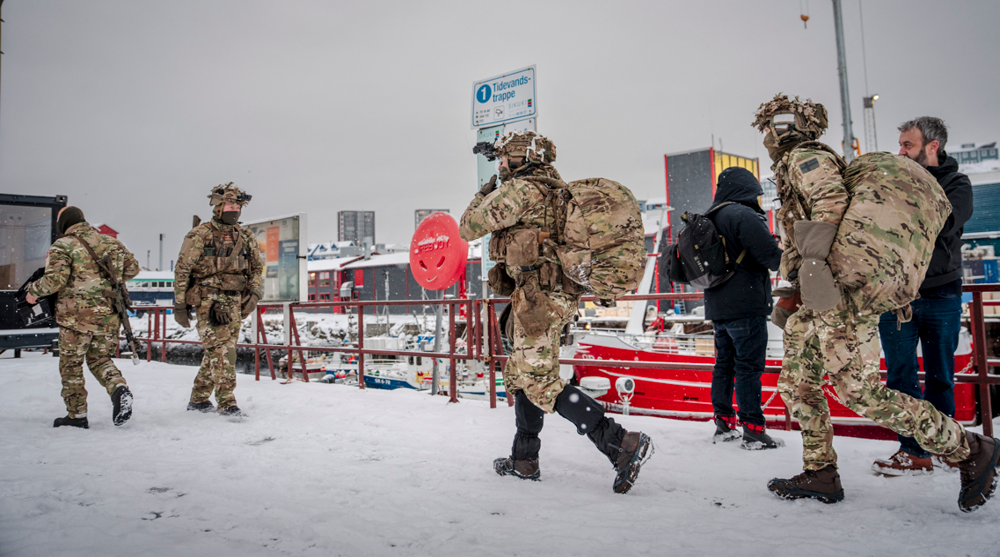Greece urges refugees at Idomeni to head to cleaner camps
Greek authorities, worried about the spread of diseases in makeshift refugee camps, have urged refugees to move to government-run camps with better living conditions.
Greece's health ministry officials on Sunday circulated flyers written in four languages to refugees living in the sprawling Idomeni tent city on Greece’s border with Macedonia, urging them to relocate to organized camps for their health and safety.
Meanwhile, Androula Pavli, a doctor working with the Greek health ministry, said that parotitis and scabies had already been observed at the camp, and there were fears for other diseases such as polio and tuberculosis.
"We have to explain to them this is a place where they can have problems. Already we have problems: communicable diseases and things that… problems that are related to public health, so we have to explain to them, inform them, increase awareness in these people that these problem may exist," Reuters quoted Pavli as saying.
The leaflet states that there is no possibility for health control at makeshift camps and that refugees are also at risk of snake and rat bites.
Emanuel Massart, a doctor working with Doctors Without Borders (MSF), has said that the aid agency is advocating for permission to start a vaccination campaign in the troubled camp.
The Greek government has set May 1 as a self-imposed deadline to clear the makeshift camp.
More than 12,000 people stranded at the Idomeni border crossing in northern Greece after the Balkan countries closed off the route in mid-February.
Most of refugees are reluctant to leave the camp in the hopes that the closed borders will open.

As part of an EU-Ankara deal, Greece has since April 4 started deporting to Turkey refugees who do not meet asylum-seeking criteria.
Europe is facing an unprecedented influx of refugees, most of whom are fleeing conflict-ridden zones in Africa and the Middle East, particularly Syria.
Nearly 175,800 asylum seekers have reached Europe via the Mediterranean so far this year, while over 700 people died in their journey to the continent, according to the latest figures by the International Organization for Migration (IOM).
On April 12, The German news organization Funke Mediengruppe reported that 5,835 refugee minors from countries in Africa, the Middle East and Central Asia went missing in the Western European country in 2015, of whom 555 are under the age of 14.
Several members of the European Parliament said late last month that missing underage refugees might be victims of criminal organizations involved in sex, slavery or organ trafficking.
Many blame support by some Western countries for militants operating in the Middle East as the main reason behind the departure of refugees from their home countries.
VIDEO | Press TV's news headlines
VIDEO | 'War on Iran is only just beginning' ft. Laith Marouf
VIDEO | Gaza’s economy collapses due to Israeli war
VIDEO | Israel rejects US-approved Gaza technocratic committee
‘Narcissistic psychopath’: Netizens mock Trump over letter to Norway PM on Nobel Prize
Israeli forces demolish UNRWA buildings in occupied East al-Quds
Trump lashes out at allies over Greenland, shares private texts online
Iran’s Armed Forces will cut off any 'hand of aggression' against Leader: Spokesman















 This makes it easy to access the Press TV website
This makes it easy to access the Press TV website